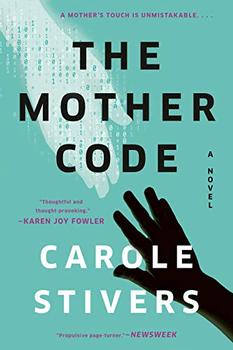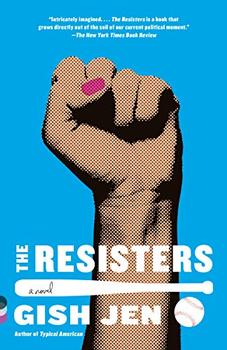Summary | Excerpt | Reading Guide | Reviews | Beyond the book | Read-Alikes | Genres & Themes | Author Bio

Christina Dalcher's Master Class shows America sleepwalking into a perfectionist eventuality not dissimilar to the one in Aldous Huxley's dystopian classic Brave New World. In Dalcher's novel, the state utilizes closely monitored "Q rankings" to determine children's futures. These rankings also dictate continuing levels of prosperity and social status for adults. The story describes a society in which academic pre-eminence is celebrated, while "feeblemindedness" and notions of individuality and diversity—whether educational, ethnic or sexual—are scorned.
Elena Fairchild, a teacher at a prestige school for advantaged children, is experiencing a crisis of conscience. Trapped in a marriage with a man she no longer loves, she is conflicted regarding the needs of her daughters, Freddie and Anne. Freddie is failing to achieve the prescribed educational standards, while Anne is exceeding them to the detriment of her childhood. Elena's husband Malcolm, who is deputy secretary in the Department of Education, is an unflinching advocate for society's oppressive dogma. Malcolm's dismissive and at times disgusted attitude toward Freddie causes Elena concern that is further compounded during interactions with her extended family, whose liberal values provide a stark contrast to those of her increasingly fundamentalist husband. In the meantime, despite the protection afforded by Malcolm's status, her family remains vulnerable to the dictates of the state. When Freddie, with Malcolm's blessing, is packed off to a school situated in a remote region of the country due to poor test results, Elena is presented with a difficult choice, one that will detonate her cozy existence and force her to reconsider her position and her family's future.
Master Class does a fine job of exploring the insidious nature of authoritarianism and showing how government officials are able to exercise unsettlingly high levels of control over citizens through a subtle manipulation of information, language and the media. The reader is introduced to a disturbing array of institutions, with names like the Fitter Family Campaign and the Genics Institute, whose job is to enforce oppressive policies, while characters such as Madeleine Sinclair, the federal secretary of education, provide a sheen of government respectability via the media.
Set in a future world not dissimilar to now, Master Class is frightening in its plausibility. By focusing on the miseducation of children and discrimination based on intellect, race, sexuality and disability, Dalcher creates a microcosm for the society in her novel. It is through this prism that the reader gains a broader understanding of the state's end goal of establishing a patriarchal hegemony in which the highest earners, men, have the most rights and in which educational conditioning, birth control, social engineering and eugenics all have a part to play in remodeling the nation. This goal has historical precedent in the American eugenics movement of the late 19th and early 20th century as well as the rise of the Nazi Party in Germany during the 1920s and '30s (see Beyond the Book).
Elena's journey toward self-realization, her experience of motherhood and the challenges she must overcome to safeguard her children form the axis around which the novel's socio-political preoccupations pivot. Alternating between Elena's first-person narrative and periodic reflections on past events, the story reveals its secrets slowly. Elena's voice is self-deprecating, humorous and cynical. It is also incredibly intimate, which is particularly apparent when she is reflecting frankly on her relationship with Freddie and the difficult decisions she is forced to make in order to ensure her daughter's well being: "I know the consequences of choosing Freddie over Anne...It's a horrible choice, one I would have imagined unthinkable, but it's not the worst one I've ever made. Not by a longshot." Dalcher generates an amazing amount of reader empathy for Elena's plight despite the mistakes she has made, including her complicity in the development of the Q rankings.
Master Class is an unmitigated success. The story of Elena's journey confidently functions as both an assured dystopian thriller and a meticulously constructed socio-political cautionary tale. Fans of The Handmaid's Tale, and of dystopian fiction generally, will find much to please them in this impressive story of self-determination under pressure to conform.
![]() This review was originally published in The BookBrowse Review in May 2020, and has been updated for the
March 2021 edition.
Click here to go to this issue.
This review was originally published in The BookBrowse Review in May 2020, and has been updated for the
March 2021 edition.
Click here to go to this issue.

If you liked Master Class, try these:

by Carole Stivers
Published 2021
What it means to be human-–and a mother-–is put to the test in Carole Stivers' debut novel set in a world that is more chilling and precarious than ever.

by Gish Jen
Published 2021
The time: not so long from now. The place: AutoAmerica. The land: half under water. The Internet: one part artificial intelligence, one part surveillance technology, and oddly human--even funny. The people: Divided.
Your guide toexceptional books
BookBrowse seeks out and recommends the best in contemporary fiction and nonfiction—books that not only engage and entertain but also deepen our understanding of ourselves and the world around us.